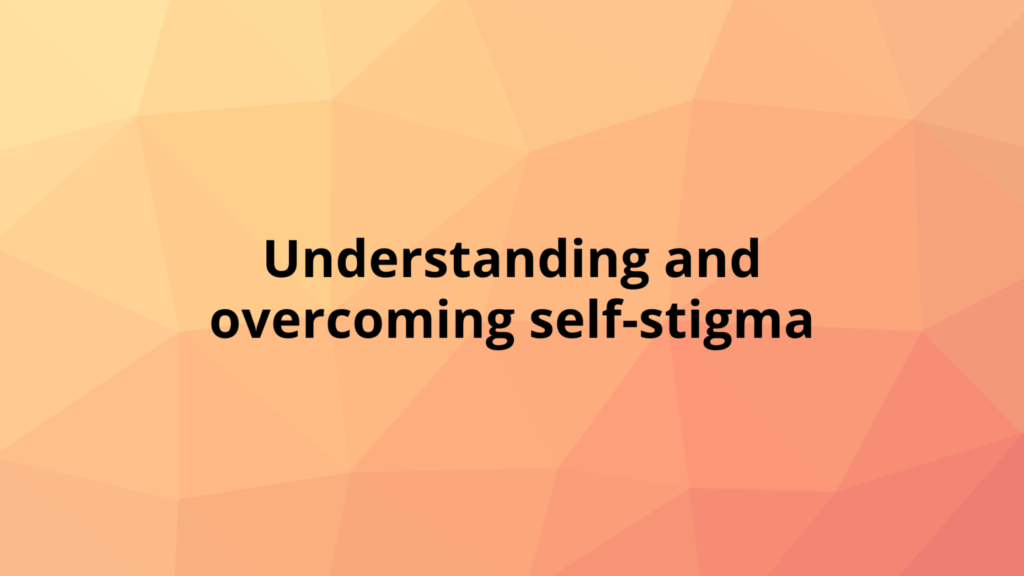
Self-stigma occurs when individuals with mental health challenges internalise society’s negative attitudes, leading to feelings of shame, low self-esteem, and a reluctance to seek help. It’s a hidden struggle that can have profound impacts on an individual’s mental and emotional well-being.
What is Self-Stigma?
Self-stigma is the internalisation of public stigma. When people with mental health issues absorb and accept the negative stereotypes and beliefs about their experience, it can lead to self-criticism and a belief that they are less worthy or capable. This internal conflict can exacerbate their mental health problems and hinder their recovery.
The Impact of Self-Stigma
Self-stigma can have several detrimental effects, including:
- Decreased Self-Esteem: Believing negative stereotypes can lead to feelings of worthlessness and self-doubt.
- Reduced Help-Seeking: Fear of judgment and discrimination can prevent individuals from seeking the help they need.
- Social Withdrawal: Shame and embarrassment can cause people to isolate themselves from friends, family, and social activities.
Overcoming Self-Stigma
Overcoming self-stigma is a step towards recovery. Here are some strategies to help manage and reduce self-stigma:
- Educate Yourself: Learn about your mental health, to understand that it is not a personal failing but a medical issue that can be managed with the right treatment and support.
- Challenge Negative Thoughts: Identify and question the negative beliefs you hold about yourself. Replace them with more realistic and compassionate perspectives.
- Seek Support: Talk to trusted friends, family members, or support groups. Sharing your experiences can help reduce feelings of isolation and provide validation.
- Seek Professional Help: Therapists and counsellors can offer strategies to combat self-stigma, such as cognitive-behavioural techniques that help reframe negative thoughts.
- Celebrate Strengths and Achievements: Focus on your strengths and accomplishments, no matter how small. Recognizing your capabilities can build self-esteem and confidence.
- Practice Self-Compassion: Treat yourself with the same kindness and understanding that you would offer to a friend facing similar challenges.
We believe in you!
Download the helpful guide
Education and open conversations are key to reducing stigma and creating a more supportive environment for everyone. This quick guide will help you get started.
Download your copy of the helpful guide.
What’s on during Challenging Stigma Week
Share

